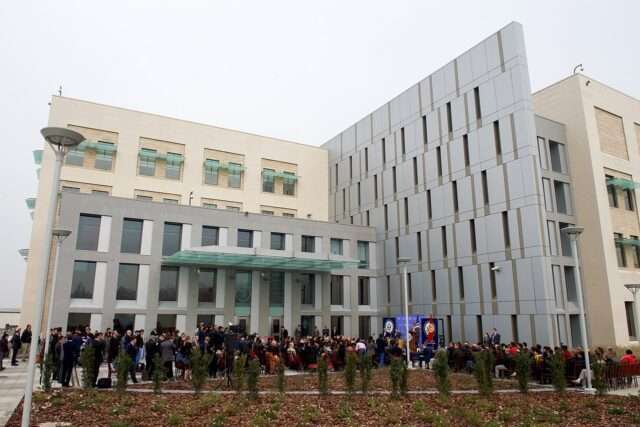Kyrgyzstan wants to strengthen commercial ties with the United States

The recent meeting between Zhaparov and the U.S.-Kyrgyzstan Business Council stressed Bishkek’s desire to strengthen economic relations with the United States and attract U.S. investors in its country. Balancing among these international players could be one of the main challenges that Kyrgyzstan should address, as well as the necessity to maintain control over the population and avoid possible socioeconomic problems.
On October 25th, 2022, Chairman of the Cabinet of Ministers of the Republic of Kyrgyzstan Akylbek Zhaparov received members of the U.S.-Kyrgyzstan Business Council, with whom he discussed measures to further strengthen the trade dialogue between Kyrgyzstan and America, the press service of the government of Kyrgyzstan reports.
Japarov noted that during a working trip to the United States in April this year, he invited representatives of U.S businesses to visit Kyrgyzstan on a study visit. He also expressed hope that during the visit, representatives of U.S.companies will have the opportunity to study Kyrgyzstan’s trade and investment opportunities and establish mutually beneficial contacts with the country’s business circles. Indeed, Zhaparov stressed that the Kyrgyz Republic is always open for investment.
Among the Cabinet of Ministers’ goals is to pursue a policy to create the most comfortable conditions for business. The Prime Minister noted that a liberal legislative base had been created in the country regarding protecting foreign investors’ rights. In turn, representatives of the U.S.-Kyrgyzstan Business Council stressed that the U.S. side is ready to support initiatives to strengthen trade and economic ties between the two countries.
Why does it matter?
Kyrgyzstan needs foreign investments to develop its economy and support national infrastructural projects. The Russian Federation and China have been the leading commercial partners and investors in the Kyrgyz economy, but Bishkek has recently looked at new investors to diversify its economy and domestic market and decrease its dependence on Moscow and Beijing.
Looking at the economy, Kyrgyzstan financially relies more on Chinese investments allowing Beijing to exploit this economic dependence to affirm its presence and influence. Indeed, more than 40% of the Kyrgyz foreign debt (1.8 billion dollars) is owed to the Export-Import Bank of China due to Chinese investments in a series of infrastructure projects in the last decade.
On the other hand, the Russian Federation has been a key player in Kyrgyz domestic politics since the country is part of Moscow’s blizhnee zarubezhe (near abroad) and lebensraum and a member of the Eurasian Economic Union (EAEU) and the Collective Security Treaty Organisation (CSTO). By contrast, recent developments and clashes at the Kyrgyz-Tajik border and the current situation that the Kremlin is experiencing due to the Ukraine conflict and the following Western sanctions have pushed Bishkek to seek different partners in politics, economy, and security.
In this context, Kyrgyz authorities might rely more on the United States by inviting U.S. entrepreneurs and investors to be more present and active in the market and infrastructural projects. Zhaparov’s words to the U.S.-Kyrgyz Business Council are not only an exhortation to U.S. companies but also a message to Central Asian main regional actors, Russia and China.
In this scenario, it is possible to add also Gulf Arab countries such as the United Arab Emirates and Saudi Arabia, which expressed their willingness to invest in the Kyrgyz market. Indeed, Gulf monarchies aim to become more involved in the regional dynamics by exploiting foreign direct investments (FDIs) in infrastructural projects, boosting trade exchange with local actors, and using the card of Islam to gain popularity among the local population.
On the one hand, Bishkek needs different partners and investors to stimulate its domestic market and economy. On the other hand, by contrast, the Russian and Chinese presence and influence in Kyrgyzstan will hardly fade and leave opportunities to other actors, especially the United States, whose embassy in Central Asia has used the so-called soft power to promote Washington’s regional agenda and contrast Moscow and Beijing.
Balancing among these international players could be one of the main challenges that Kyrgyzstan should address, as well as the necessity to maintain control over the population and avoid possible socioeconomic problems, which might create internal disappointment and possible protests as other Central Asian republics such as Kazakhstan, Uzbekistan, and Tajikistan experienced in 2022.
For further information or report about Central Asia and the geopolitics of Kyrgyzstan, please feel free to Contact Us.
